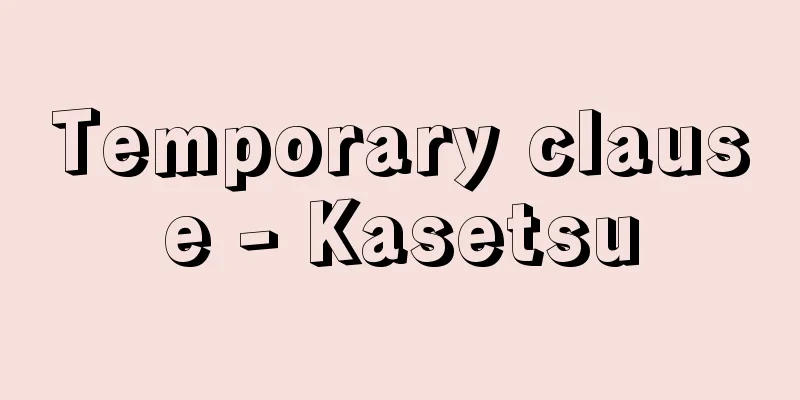Takashi - Gyo

|
An emperor in ancient Chinese mythology and legend. He is said to have corrected the movements of the celestial bodies, established the calendar, ordered Gun to control the floods, and abdicated the throne to Shun, but he is more of a deity like a heavenly emperor and not a real person. Later, he was made into history and revered as an ideal emperor along with Shun. → Three Sovereigns and Five Emperors → Related article Abdication and Release of Rule | Linfen Source : Heibonsha Encyclopedia About MyPedia Information |
|
中国,古代神話・伝説上の帝王。天体の運行を正して暦法を定め,鯀(こん)に治水を命じ,舜に位を譲るなどの事跡が伝えられるが,むしろ天帝的神格で実在的人物でない。後世歴史化され,舜とともに理想的帝王として尊崇された。→三皇五帝 →関連項目禅譲放伐|臨汾 出典 株式会社平凡社百科事典マイペディアについて 情報 |
Recommend
International Conference for Asian and African Studies
…The first International Conference on Near Easte...
Government-run shipyard - Kan'eizosenjo
…Then, in 1856, the Mito Domain built a repair fa...
Brake van - Air vehicle
The term "kankyu ressha" (express train)...
Local merchant - Zaigō Shōnin
From the mid-modern period onwards, non-privilege...
Okubo Saichi
...The Mitsui family expanded the facility to 520...
Inunankakuran (English name) Tmesipteris
Its Japanese name was given to it because of its r...
Akizu - Akizu
…A general term for insects belonging to the orde...
Assaka - Asaka
…The term mahājanapada translates to “great count...
Native capital
Indigenous capital in colonies and dependent coun...
Latin - Latin (English spelling)
Originally, they were a tribe that lived in the L...
Skirōn (English spelling) Skiron
…The Procrustean bed, which is still used today t...
Ibaramo - Ibaramo
A submerged annual plant of the family Diptera (il...
Ark of the Covenant
1. A box that contained the stone tablets on which...
Nakajima Aircraft Co., Ltd.
Founded in 1917 by Nakajima Chikuhei, it was Japan...
Dentures
…A general term for artificial teeth, also known ...









![Kiyomi [village] - Kiyomi](/upload/images/67cb6014d6db2.webp)